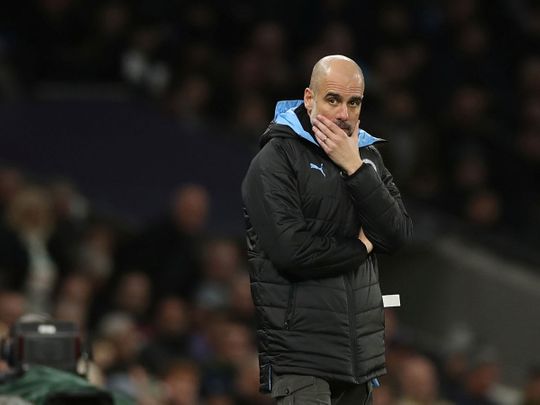
Manchester City face a pivotal day on Monday when the Court of Arbitration for Sport delivers its verdict on the English Premier League club’s appeal against a two-season ban from European competitions.
The stakes could not be higher for the English side, who have always strongly denied any wrongdoing over allegations they deliberately inflated the value of income from sponsors, to avoid falling foul of FFP regulations between 2012 and 2016.
In February, Uefa imposed a fine of 30 million euros on City as well as suspending them from European competitions for the next two seasons.
“Today we achieved qualification for the Champions League mathematically,” said coach Pep Guardiola on Saturday after a 5-0 rout of Brighton which cemented second-place in the Premier League.
“We deserve to be there because we won it on the pitch. Hopefully on Monday, Uefa can allow us to play as this team and these players deserve to.”
City’s fortunes have been transformed since moving into Abu Dhabi ownership through City Football Group 12 years ago — from perennially living in the shadow of local rivals Manchester United to winning four Premier League titles in the past eight years among 11 major trophies.
Yet the prize that has eluded them is the one the Abu Dhabi project most desires — the Champions League.
Guardiola’s last shot?
No matter the outcome on Monday, City will have the chance to do so in August as they resume their Champions League campaign with a 2-1 lead over Real Madrid from the first leg of their last 16 tie.
That could be the last chance for some of City’s biggest names to win the Champions League for the club as a two-year ban would have severe consequences for the club’s finances.
Guardiola’s contract runs until the end of the 2020/21 season and the Catalan is unlikely to still be in charge in two years’ time.
Star players such as Kevin De Bruyne and Raheem Sterling are also unlikely to want to waste two of their peak years without Champions League football.
“Two years would be long. One year is something I might be able to cope with,” De Bruyne said in June.
It would still take huge fees from rival clubs to tempt City to sell, but they may be forced to downsize to gain re-entry to the Champions League even after any ban is over.
City made 93 million euros from Uefa prize money and TV rights from last season’s Champions League, with gate receipts and extra sponsorship revenue from Europe’s premier club competition added to that tally.
It would be almost impossible for the club to lose that level of revenue for two years and remain FFP-compliant without cutting costs on transfer fees and wages, or selling players.
Even more painfully for City, Manchester United could be one of the major beneficiaries of their exclusion.
City are comfortably second in the Premier League table, but if they are banned, fifth will be good enough to qualify for the Champions League.
United are currently in fifth with Chelsea or Leicester the other sides likely to profit.








